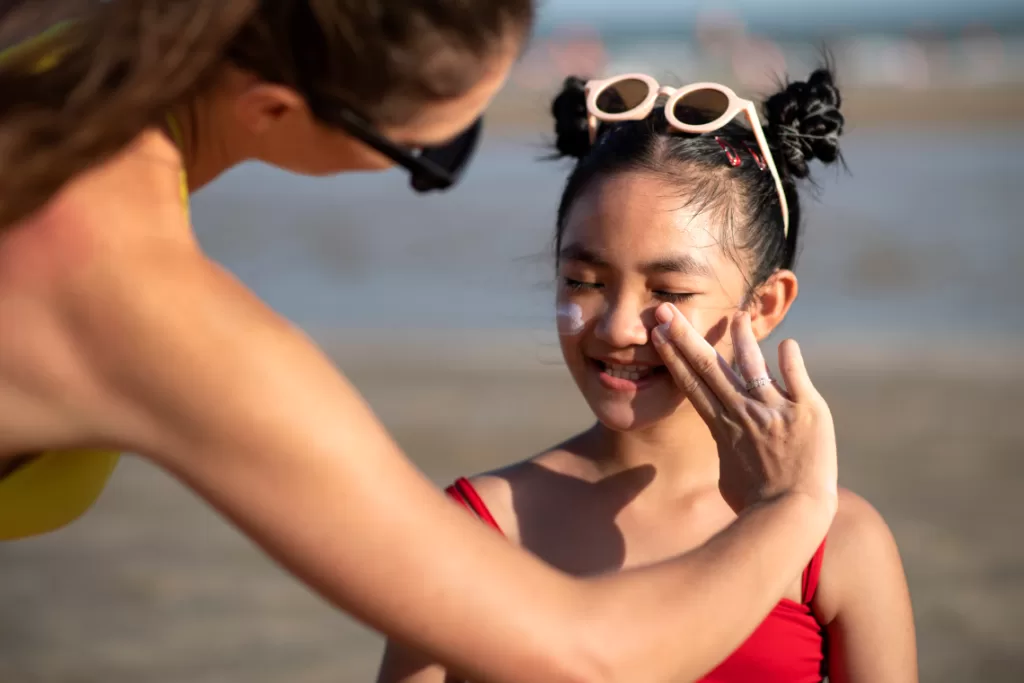Affinity Health, a leading provider of high-quality health coverage, highlights ways to enjoy the sun safely and protect your skin.
“The National Institutes of Health highlight the importance of sunshine for our bodies to make vitamin D, essential for healthy bones and lowering the risk of developing autoimmune diseases,” said Murray Hewlett, CEO of Affinity Health.
“However, too much sun exposure can be dangerous.”
Here’s how to protect your skin from sun damage while enjoying warm weather.
What Happens to Your Skin When You Tan?
We often think of a tan as a sign of health, but it’s your skin trying to defend itself against UV damage. When UV rays hit your skin, your body produces extra melanin – the pigment that darkens your skin tone. This is your skin’s way of building up a barrier. But don’t be fooled: a tan doesn’t mean you’re protected from the dangers of UV exposure. It’s a sign that damage has already occurred.
Understanding UV Rays
The sun emits energy in various forms, including visible light that you can see, infrared radiation that you feel as warmth, and ultraviolet (UV) rays that are invisible and undetectable by touch.
Ultraviolet A rays (UVA)
These rays penetrate the atmosphere with little resistance, meaning most UVA radiation reaches the Earth’s surface. UVA rays are known to accelerate skin ageing, cause eye damage, and weaken the immune system, increasing the overall risk of skin cancer.
Ultraviolet B rays (UVB)
While the Earth’s atmosphere blocks a significant portion of UVB rays, the amount that reaches the surface varies based on location, altitude, and season. UVB rays are responsible for sunburn, can contribute to skin ageing, and pose a risk of skin cancer. They can also cause snow blindness, a painful burn to the cornea that temporarily impairs vision and can weaken immune function.
Ultraviolet C rays (UVC)
The atmosphere completely absorbs UVC rays, preventing them from reaching the Earth’s surface, making their potential harm negligible.
Ways to Guard Against Sun Damage
Protecting your skin doesn’t mean staying indoors during summer. Here are a few practical ways to keep your skin safe:
Choose the Right Sunscreen: The Cancer Association of South Africa (CANSA) recommends using a broad-spectrum, water-resistant sunscreen with a high SPF (Sun Protection Factor).
For the best protection, apply sunscreen about 30 minutes before you head outdoors. This gives it time to absorb into the skin properly. Reapply it every two hours or more often if you’re in the water or sweating, and remember to cover places like the ears, the back of the neck, and the tops of your feet.
Choose sunglasses that specifically offer 100% UV protection to safeguard your eyes and protect your lips with an SPF of at least 15.
Cover Up: Wear protective clothing to shield yourself from the sun (tightly woven, loose-fitting clothing offers extra coverage and protection). Invest in a wide-brimmed hat to protect your ears, face, and neck, as well as sunglasses that block UVA and UVB rays.
Seek Shade: The sun’s rays are most intense between 10 a.m. and 4 p.m. A simple way to gauge this is by checking your shadow – if it’s shorter than you, UV exposure is at its highest. Find a spot in the shade or use a sun umbrella whenever possible.
Skip the Tanning Beds: Tanning beds expose your skin to intense UV rays, significantly increasing your risk of skin cancer. If you want a sun-kissed look, consider instant tan lotions.
Check for Medication Warnings: Some medications, such as antibiotics, acne treatments, certain diuretics, and antihistamines, can make your skin more sensitive to sunlight (photosensitivity), increasing the risk of burning. Always check the label, and
if you’re taking something that increases sun sensitivity, take extra precautions like wearing protective clothing and using sunscreen more frequently.

Watch for Changes in Your Skin: It’s a good habit to monitor any new or changing moles, spots, or marks on your skin. If something seems unusual, consult a doctor right away. For more on the early signs and symptoms of skin cancer and skin changes to watch out for, click here.
By following these simple steps, you can reduce your risk of sun damage, prevent premature ageing, and lower your chances of developing severe skin issues.




























